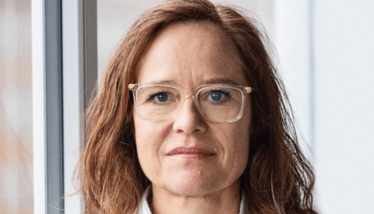Biologically Driven
Academia has its appeal for many; for others the real challenges are in industry. Here, IO Biotech CEO Mai-Britt Zocca discusses her own motivations
| 4 min read | Interview

Credit: Interviewee supplied
A medicine making career often begins in academia. So what drives an academic into industry? The same thing that drew them towards academia, according to IO Biotech founder and CEO Mai-Britt Zocca – curiosity and a desire to use one’s intellect to help improve quality of life for patients. And once established in industry, it’s the challenges (and overcoming them) that maintains the appeal.
How did you come to focus on translational science and clinical immuno-oncology?
It dates back to my PhD days at the US National Cancer Institute, where I studied patient reactions to cancer vaccines. Seeing how the immune system worked in patients and how we could drive T cell responses was really exciting – and that passion has never faded. We have come a long way since then, and we are now seeing how science in the immuno-oncology field is delivering value in clinical settings. In a translational setting, we are learning how the biology works in patients and how we can now better adapt trial designs to see improved outcomes. It’s truly exciting to be in this field and be a part of the developments that we are seeing.
Why make the shift to industry?
Immunology has always drawn my attention. When I started to understand how we were able to drive a specific response from cytotoxic T cells towards cancer cells and translate that to patients, I decided to join the NIH. As we began to understand how we could launch viable products, I became interested in the biotech space and commercial drug development.
What does a biotech offer that perhaps big pharmaceutical players cannot?
Biotechs tend to have very short decision paths with few layers, which means things can move quickly. IO Biotech was founded in 2014 and just 10 years into the journey we are in a pivotal phase III trial; I think that’s quite fast, even in biotech settings. And that is what is attracting more seasoned CEOs into the biotech field. What we are really in it for is the innovative medicines that can drive changes in the landscape – not only for a small patient group but for new treatment strategies that will have an impact in broader settings.
Therapeutic cancer vaccines is a field that hasn't really proven itself yet, but there is a big wave coming, with multiple players working to drive the area forward.
How important is collaboration and surrounding yourself with the right partners and players?
It is really important – and not only for where we are today, but also where we were some years ago – and where we hope to be years from now. If you look at our pipeline, we are working across several indications and getting drugs delivered by Merck Sharp & Dohme via a drug supply agreement. Take our phase III trial as an example; it’s a big trial involving several hundred patients receiving pembrolizumab or anti-PD 1 antibodies. This is very costly, so for us it’s a valuable collaboration.
We also have collaborations with some of the large cancer institutions in Europe and the US. We have recently launched an investigator-initiated trial with Memorial Sloan Kettering that is now enrolling patients in a metastatic melanoma trial so we can begin testing our cancer vaccine therapy in a new combination alongside our lead program.
What would you be doing if you weren't leading a business like IO Biotech?
I always identify myself as a founder of companies, with IO Biotech being the fifth company that I have participated in founding. I’m very excited about the energy that comes from founding companies. But if I wasn’t here, I would probably be in a hospital or an academic setting, where I would look more into understanding the exciting ways that biology and immunology can work together to help patients.
Give us a bold prediction for how the sector might look in 5-10 years time…
I see a future where we will have approvals of several new medicines that will change and improve the outcome for many patients in need. I’m not only thinking about oncology; there are many interesting developments in neuroimmunology where we haven’t seen many new drugs in many years.















